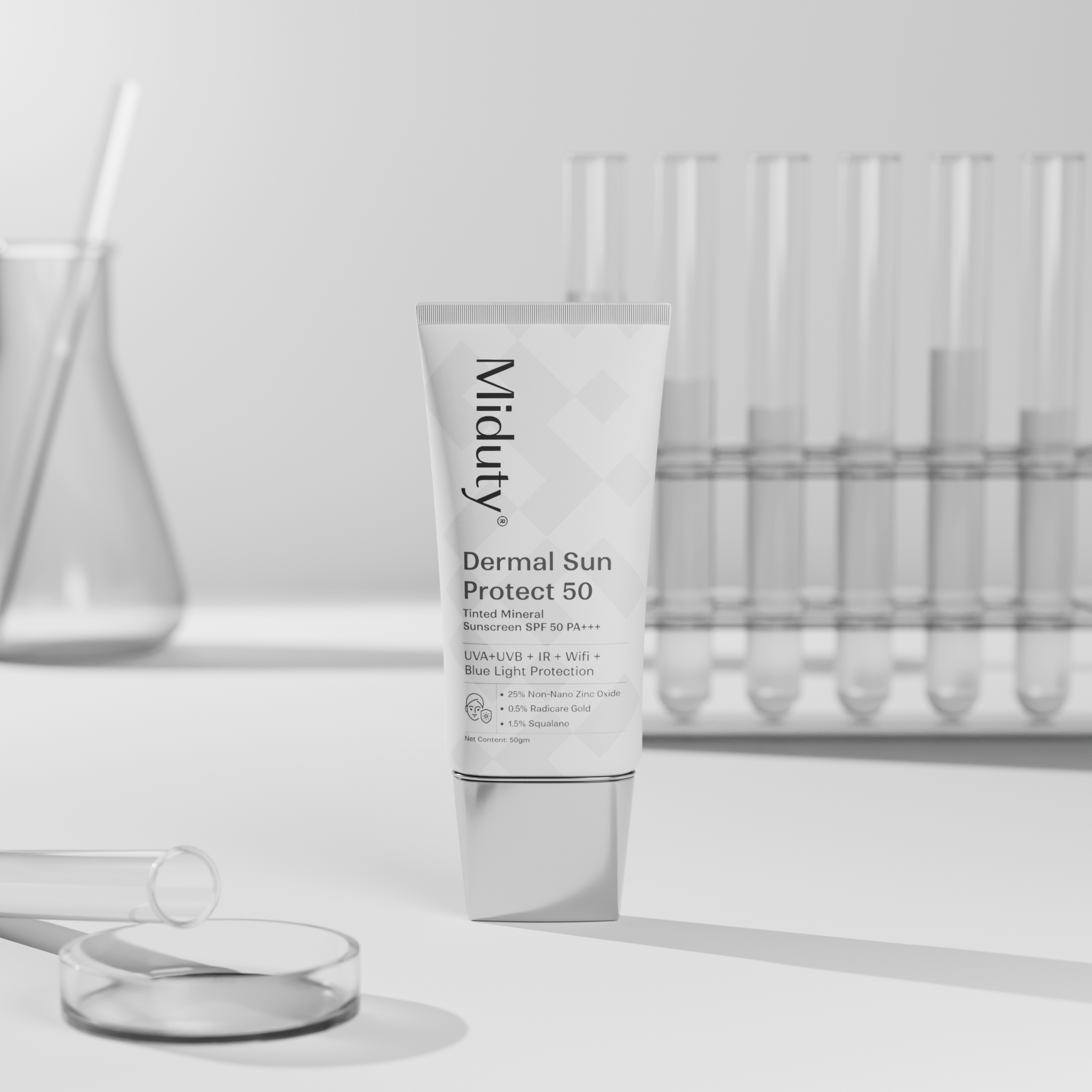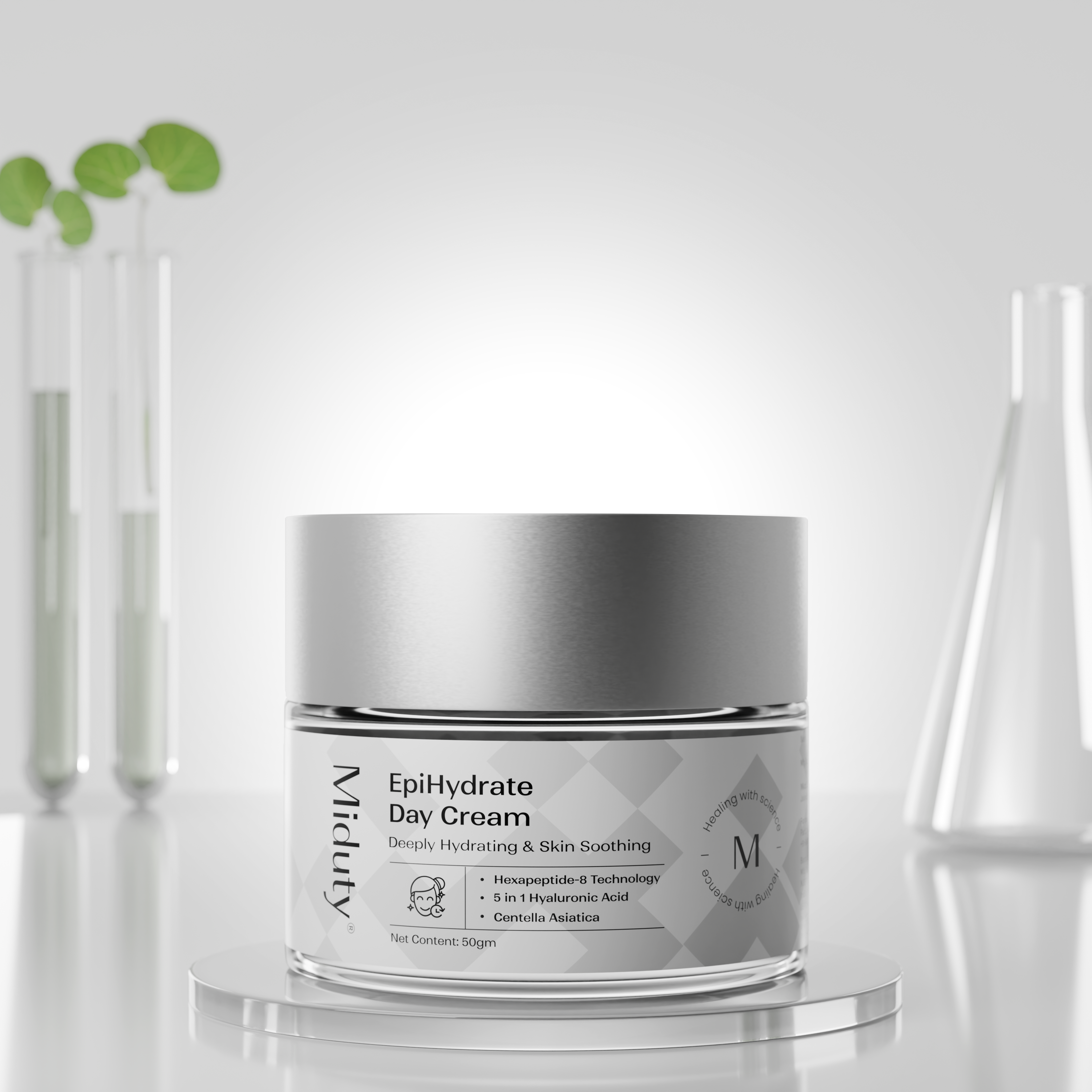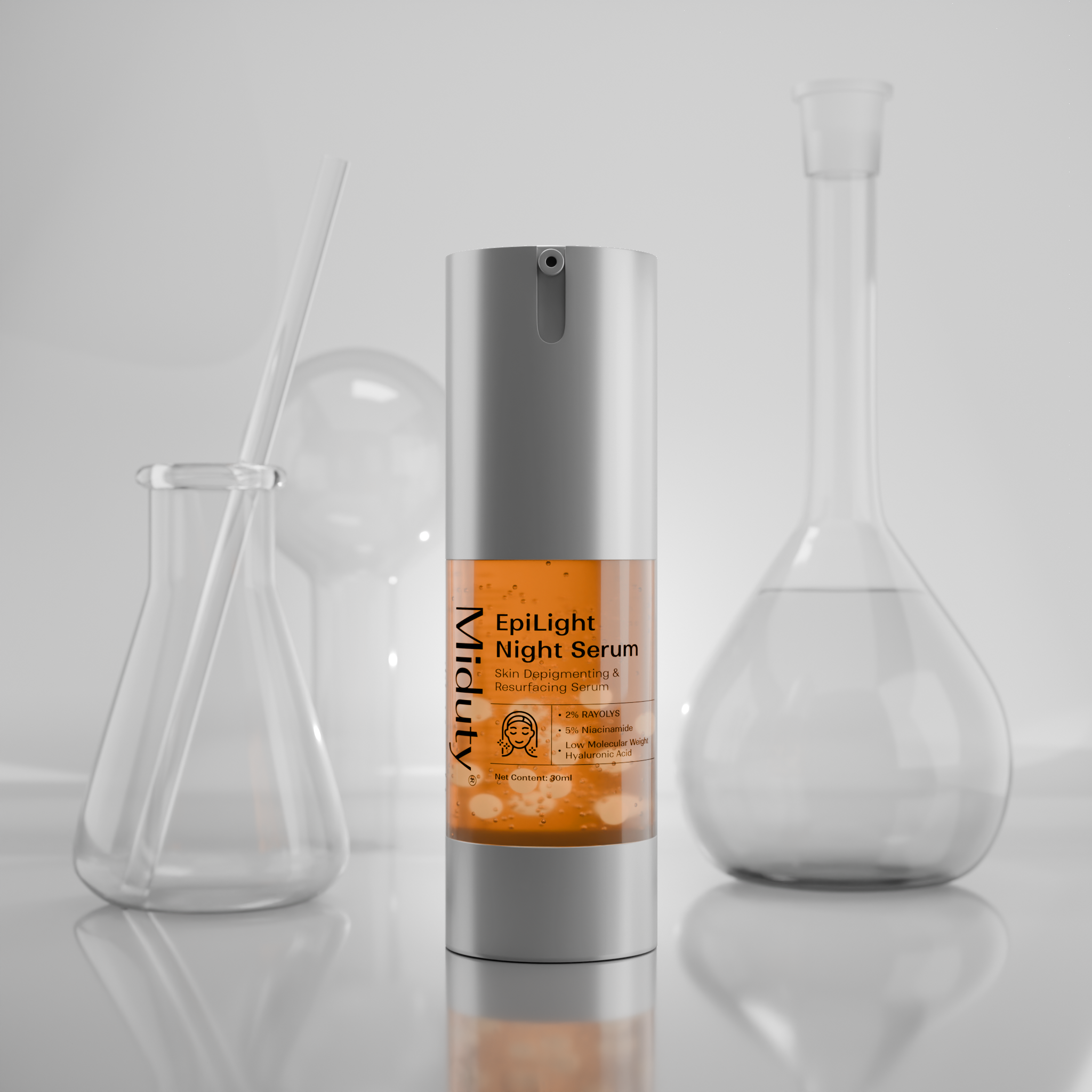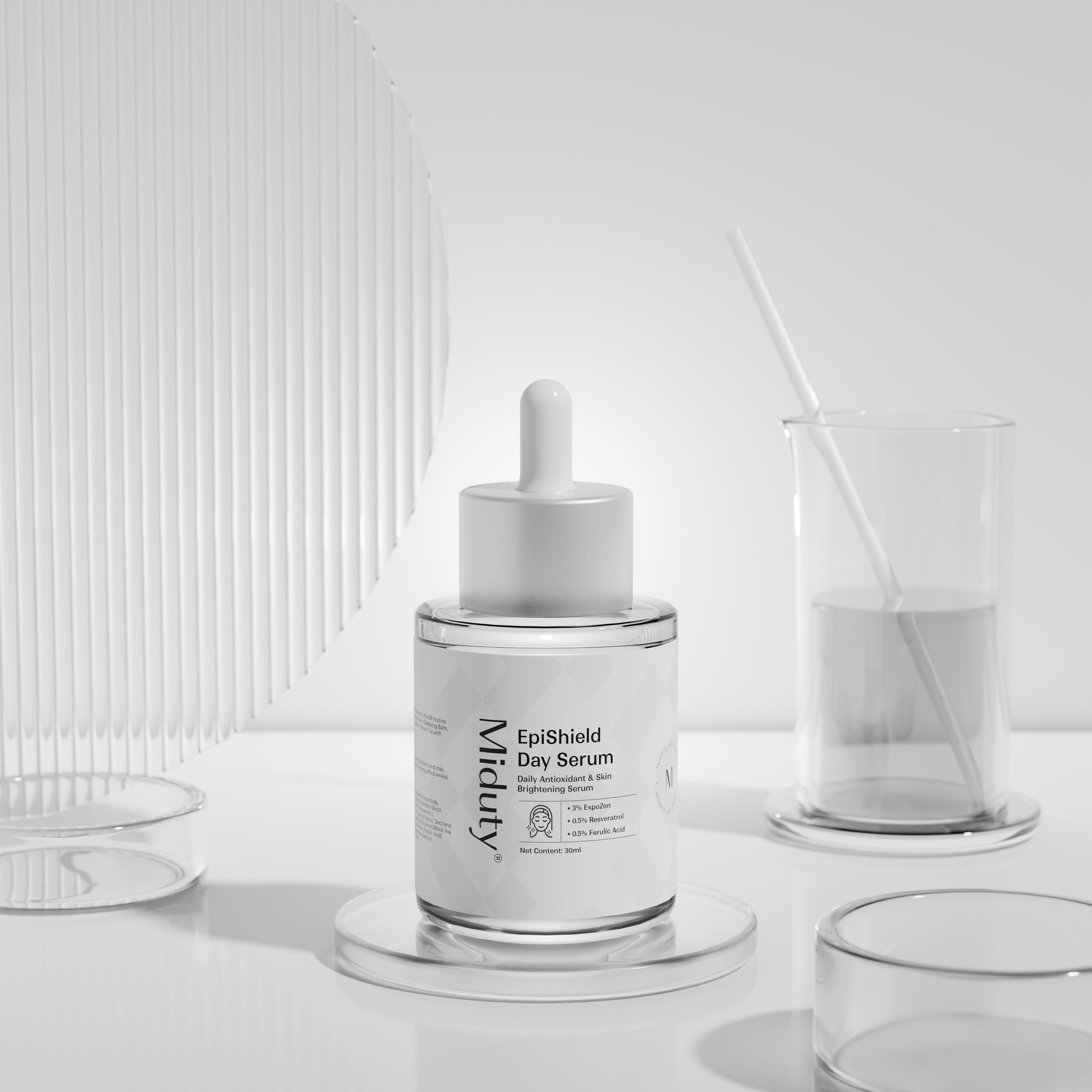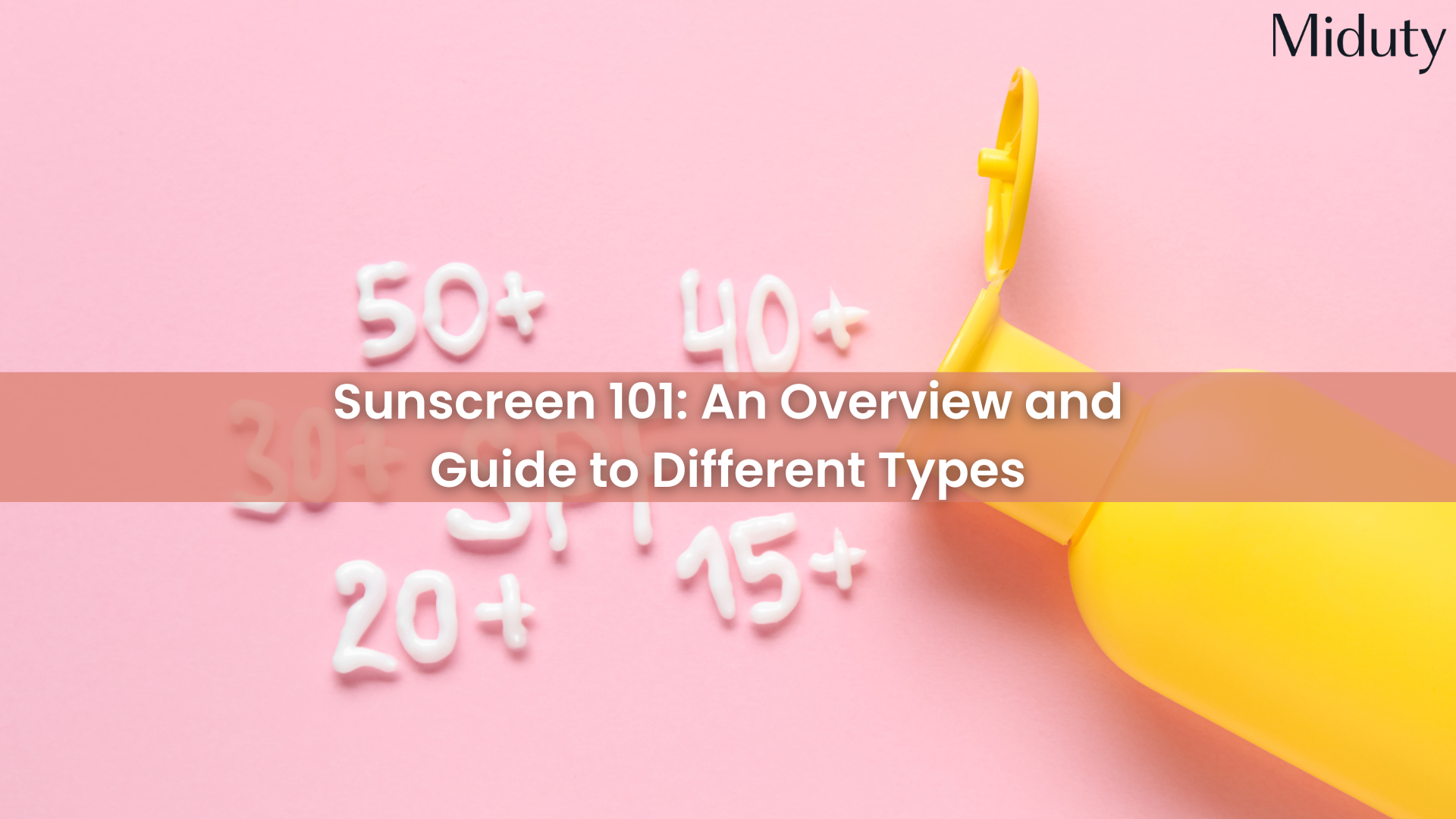
Sunscreen 101: An Overview and Guide to Different Types
Key Takeaways
1. Applying sunscreen to your face is a critical step in preventing short and long-term sun damage, including burns and skin cancer.
2. Skin cancer is the most common form of cancer in the United States, affecting 1 in 5 adults. [1]
3. It is estimated that 80% of visible skin aging is caused by UV exposure. [2]
4. You'll want to use about .04 ounces of sunscreen on your face, which equates to the size of a nickel or 1/4 to 1/3 of a teaspoon.
5. Avoid going into direct sunlight or seek shade between 10 am and 2 pm, which is when UV radiation is the strongest.
Sunscreen, skin's holy grail-often hailed as the most essential skincare product-isn't just for sunny beach days. With increasing awareness about UV radiation and its harmful effects, sunscreen has become necessary for maintaining healthy, youthful skin.
But what exactly is sunscreen? Why is it so crucial for your daily routine? What types of sunscreens are available, and is it essential to use one daily?
In this comprehensive blog, we'll break down everything you need to know about sunscreen-from its importance to the various types available, helping you make informed choices for your skin's health and protection.
What is Sunscreen?
Sunscreen is a topical product designed to protect your skin from the damaging effects of ultraviolet (UV) radiation. These rays, emitted by the sun, are known to cause skin aging, sunburn, and, in severe cases, skin cancer. Sunscreen acts as a barrier by either absorbing, reflecting, or scattering UV rays, reducing their penetration into the skin. [3]
What is Sunscreen Cream?
Sunscreen cream is a specific form of sunscreen available in a creamy texture, designed for easy application on the face and body. Sunscreen cream is often favored for its moisturizing properties and is particularly suitable for dry skin types. They spread evenly across the skin, providing comprehensive protection while also doubling up as a hydrating layer. [4]
Why is Sunscreen Important?

1. Avoids Sunburn
Sunburn is a painful consequence of UVB overexposure. Apart from the immediate discomfort, frequent sunburns increase the risk of long-term damage, such as hyperpigmentation and skin texture issues. Applying sunscreen before heading out prevents sunburn, ensuring your skin stays smooth and damage-free.
2. The Role of UV Rays
To understand why sunscreen is important, we first need to grasp the impact of UV radiation. The sun emits two main types of UV rays:
- UVA Rays: Responsible for skin aging and long-term damage. They penetrate deeper into the skin and are present throughout the day, even on cloudy days.
- UVB Rays: These rays cause sunburn and are more intense during peak sunlight hours. They are also closely linked to skin cancer.
Without sunscreen, these rays can cause significant damage to your skin cells, leading to premature aging, hyperpigmentation, and increased risks of skin diseases.
3. Prevents Premature Aging
Exposure to the sun accelerates the appearance of wrinkles, fine lines, and sagging skin. UVA rays break down collagen and elastin fibers in your skin, which leads to the loss of skin firmness and elasticity. Sunscreen serves as your anti-aging weapon, preserving your skin's youthfulness by preventing UV-induced damage.
4. Protection Against Skin Cancer
The most critical reason sunscreen is essential is its ability to prevent skin cancer. Prolonged exposure to UV radiation damages skin cells' DNA, leading to mutations that can result in various forms of skin cancer, including melanoma-the deadliest type of skin cancer. Using sunscreen regularly lowers your risk of developing these dangerous skin conditions.
Is Sunscreen Necessary Indoors?
Yes, sunscreen is necessary indoors! It's a common misconception that sunscreen is only needed when you're outside soaking up the sun. But here's the thing: even when you're indoors, UVA rays-those responsible for skin aging and long-term damage-can still reach you through glass windows. Whether you're working from home, sitting by a sunny window, or driving in your car, those sneaky UVA rays can penetrate the glass and quietly damage your skin over time.
Think about it: how often do we sit near windows without realizing the sun is hitting us? Even if you're not getting sunburned, your skin is still being exposed to these harmful rays, which can contribute to wrinkles, dark spots, and even skin cancer. So, if you want to keep your skin protected, applying sunscreen indoors is just as important as when you're out and about. It's a simple step that offers continual protection, no matter where you are. Plus, adding it to your morning routine means you're always covered-literally! [5]
Types of Sunscreens

There are two primary types of sunscreen available: physical (also known as mineral sunscreen) and chemical sunscreen. Each type offers different benefits and caters to various skin needs.
1. Physical Sunscreen (Mineral Sunscreen)
Physical sunscreens utilize active mineral ingredients, primarily zinc oxide and titanium dioxide, to form a protective barrier on the skin's surface. This barrier physically blocks and reflects harmful UV rays away from your skin, providing effective protection against sun damage. [5]
Benefits of Physical Sunscreen:
- Immediate Protection: One of the standout features of physical sunscreen is its ability to provide instant protection upon application. Unlike chemical sunscreens, which often require a waiting period to become effective, physical sunscreens can be applied just before heading outdoors. This is particularly beneficial for those who may forget to apply sunscreen in advance.
- Less Irritating: Physical sunscreens are generally considered ideal for sensitive skin types. They are less likely to cause irritation or allergic reactions, making them a suitable choice for individuals with conditions like rosacea or eczema. Their mineral-based formula is gentle on the skin, providing a protective layer without the harsh chemicals found in many chemical sunscreens.
- Environmentally Friendly: In recent years, there has been increasing awareness of the environmental impact of sunscreen. Physical sunscreens are often regarded as more eco-friendly, especially in marine environments. They typically do not contain harmful chemicals, such as oxybenzone and octinoxate, which have been shown to contribute to coral reef degradation. This makes physical sunscreens a preferred choice for environmentally-conscious consumers.
Drawback of Physical Sunscreen:
- Heavier Formula: One of the main drawbacks of physical sunscreen is its tendency to leave a noticeable white cast on the skin. This can be particularly problematic for individuals with darker skin tones, as the white residue can be more prominent. While some formulations have improved to minimize this effect, it remains a consideration for many users.
- Easily Rubbed Off: Physical sunscreens can be less water-resistant compared to their chemical counterparts. They may be easily rubbed off by sweat or water, necessitating frequent reapplication, especially during outdoor activities like swimming or sports. This can be inconvenient for those who spend extended periods in the sun.
2. Chemical Sunscreen
Chemical sunscreens contain active ingredients such as avobenzone, octocrylene, and oxybenzone. Instead of physically blocking UV rays, these ingredients absorb UV radiation, convert it into heat, and then release that heat from the skin. This chemical process allows for effective sun protection. [6]
Benefits of Chemical Sunscreen:
- Lightweight and Invisible: One of the most significant advantages of chemical sunscreens is their lightweight texture. They are typically easier to apply and absorb quickly into the skin without leaving a white residue. This makes them an appealing option for individuals who prefer a more natural look or are concerned about the aesthetic of sunscreen on their skin.
- Water-Resistant: Chemical sunscreens often boast better water resistance, making them ideal for active individuals who sweat or swim. They are designed to last longer under water or during physical activities, reducing the frequency of reapplication compared to physical sunscreens. This quality makes them a popular choice for beachgoers and athletes.
Drawbacks of Chemical Sunscreen:
- Potential for Irritation: While many people tolerate chemical sunscreens well, some may experience irritation or allergic reactions due to specific chemical ingredients. This can be a concern for those with sensitive skin or certain skin conditions. It's essential to conduct a patch test or consult with a dermatologist if you have a history of skin sensitivities.
- Environmental Concerns: The environmental impact of chemical sunscreens has gained attention in recent years. Some chemical ingredients have been linked to coral reef damage and other ecological issues. As a result, many consumers are becoming more cautious about the sunscreens they choose, leading to a preference for physical options in eco-conscious communities.
How to Choose the Right Sunscreen?
With so many types of sunscreen available, selecting the best one for your skin can be challenging. Here are some key factors to consider:
1. Use a sunscreen of SPF 30 or higher
SPF (Sun Protection Factor) measures the level of protection that a sunscreen offers against UVB rays. For daily use, it is recommended to use sunscreen with at least SPF 30. If you will be spending long periods outdoors, opt for SPF 50 or higher.
2. Broad-Spectrum Protection
Always choose a broad-spectrum sunscreen to protect against both UVA and UVB rays, ensuring comprehensive defense against sun damage.
3. Skin Type and Preferences
- Oily Skin: Look for oil-free, non-comedogenic sunscreens that won't clog your pores. Gel or water-based formulations work best for oily skin.
- Dry Skin: Cream-based sunscreens with moisturizing properties can prevent skin from drying out.
- Sensitive Skin: Mineral or physical sunscreens with zinc oxide or titanium dioxide are less likely to irritate sensitive skin.
4. Water Resistance
If you're heading to the beach, or pool, or engaging in outdoor activities, water-resistant sunscreen is a must. However, it's important to note that water-resistant sunscreens still need reapplication after 40 to 80 minutes of exposure to water. [7]
How and When to Apply Sunscreen?

Proper application is key to ensuring you get the full protective benefits of your sunscreen. Here's how to use it effectively:
- Before applying sunscreen, wash your face with a cleanser to remove makeup and oil.
- Use a nickel-sized amount of sunscreen for your face, and also apply it to your neck and upper chest.
- Apply sunscreen after washing and moisturizing your face, but before applying makeup.
- Reapply sunscreen every two hours, or after sweating or swimming.
- Put a generous amount of sunscreen on your index and middle fingers, then dot it all over your face and massage it in.
- If you wear makeup, you can use a tinted SPF powder with a brush to apply sunscreen over your makeup.
Myths About Sunscreen

I Don't Need Sunscreen if It's Cloudy
Clouds only block a small percentage of UV rays, so your skin is still exposed. Sunscreen is necessary even on overcast days. Sunscreen is necessary even on overcast days. Clouds filter less than 25% of the UV rays that penetrate your skin to cause skin cancer. [8]
People with Dark Skin Don't Need Sunscreen
Skin pigmentation does not provide adequate protection against sun damage, including sunburns. While skin cancer incidence is lower among individuals with darker skin tones, the mortality rate within this demographic is higher due to a lack of awareness regarding the potential impact of the sun on darker skin tones. [9]
One application of sunscreen is enough
It's not necessary to reapply sunscreen if you're indoors most of the time and away from windows. However, sunscreen ingredients can degrade with sun exposure, becoming less effective over time. It's important to reapply sunscreen every two hours, especially after sweating, swimming, or exercising. [10]
Shade is enough protection from the sun
Even if you're sitting under a tree, awning, or umbrella, or wearing a wide-brimmed hat, you still need to use SPF. This is because the sun's rays can reflect off surfaces like sand and water, so even in a pool with a wide-brimmed hat, the sun can still reach your skin. [11]
Conclusion
In short-yes, sunscreen is necessary.
It's one of the simplest yet most effective ways to protect your skin from harmful UV rays, prevent premature aging, and lower the risk of skin cancer. Whether you're out in the sun, sitting indoors by a window, or enjoying a cloudy day, sunscreen remains a critical part of any skincare routine.
Frequently Asked Questions on Sunscreen -
Q1. What is the overview of sunscreen?
Sunscreen protects the skin by reducing UV exposure. There are two main types of sunscreen ingredients: physical sunscreens, which reflect and scatter UV light, and chemical sunscreens, which absorb UV light.
Q2. How do you classify sunscreen?
Sunscreens can be classified based on the type of active ingredient(s) present in the formulation. They can be categorized as mineral sunscreens (also known as physical sunscreens) which use only inorganic compounds (such as zinc oxide and/or titanium dioxide) as active ingredients.
Q3. Which type of sunscreen is best?
Consider choosing a mineral sunscreen over a chemical one because mineral sunscreens are less likely to cause skin irritation for those with sensitive skin. Combination skin types can benefit from both chemical and mineral ingredients.
Q4. How many types of SPF are there?
SPF products are available in different levels, such as SPF 15, SPF 30, SPF 50, and more. SPF 15 sunscreen filters out about 93% of UVB radiation, while SPF 30 and higher sunscreens block approximately 97% of UVB radiation.
Q5. What is SPF and PA +++ in sunscreen?
SPF 10 and PA+ provide moderate protection against harmful UVB and UVA rays, respectively. On the other hand, SPF 50 and PA++++ offer significantly higher sun protection. SPF 50 provides a high level of defense against UVB rays, while PA++++ offers exceptional protection against UVA rays.
References


